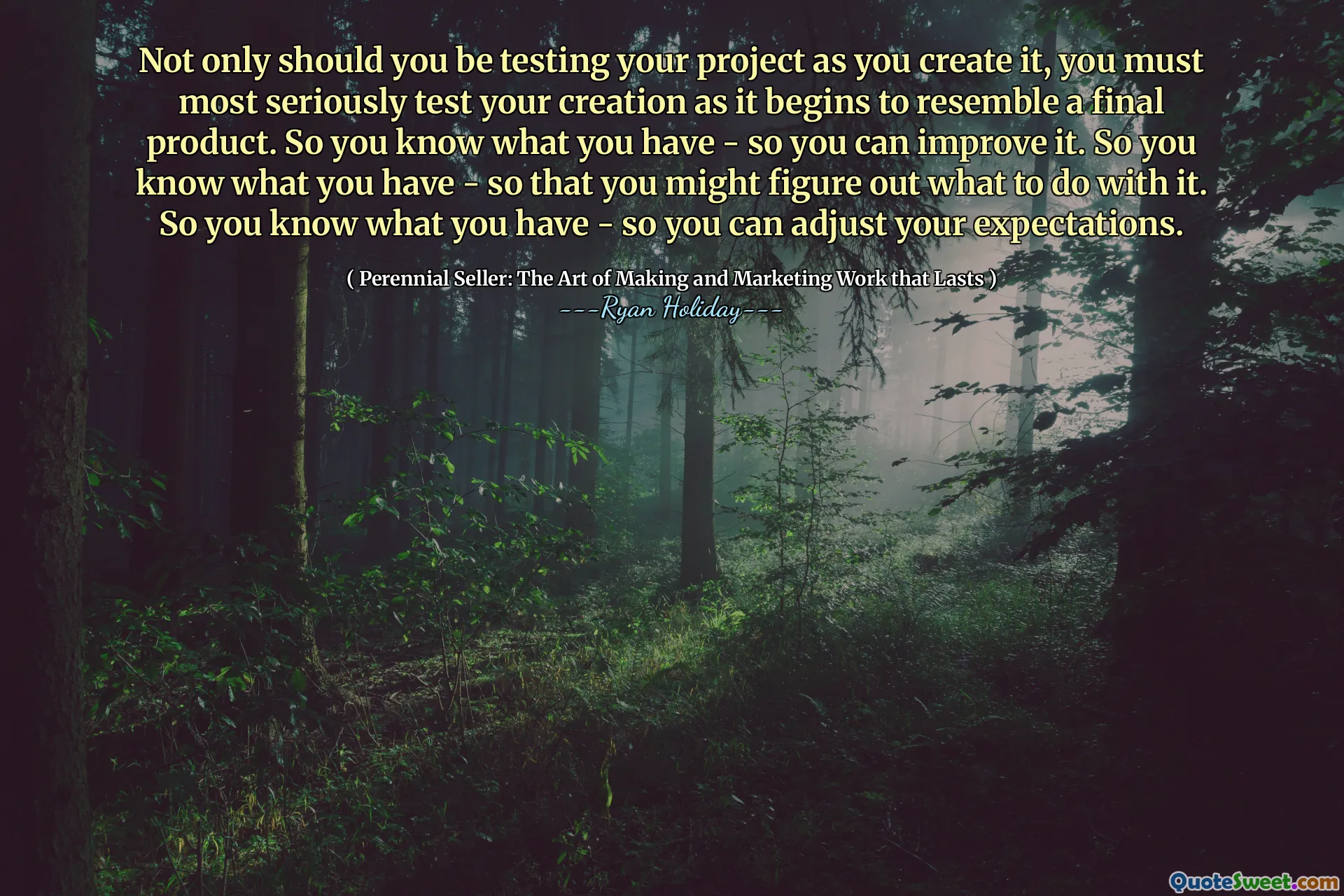
Not only should you be testing your project as you create it, you must most seriously test your creation as it begins to resemble a final product. So you know what you have - so you can improve it. So you know what you have - so that you might figure out what to do with it. So you know what you have - so you can adjust your expectations.
This quote from Ryan Holiday's "Perennial Seller" underscores a crucial aspect of the creative process that is often overlooked: the iterative nature of testing and evaluating a work as it evolves. It emphasizes the importance of not settling for surface-level assessments but rather engaging in serious, rigorous testing once the creation begins to take shape as a near-final product. This rigorous self-examination is essential because it grants the creator clarity and understanding about the work’s true nature—what is working, what is not, and where improvements can still be made.
The repeated phrase 'so you know what you have' anchors the quote’s meaning and stresses the value of honest assessment. Knowing the current state of your creation enables you to make informed decisions, both in terms of refinement and future direction. This clarity also serves as a reality check for expectations—adjusting them to be more aligned with what actually exists, rather than what was originally hoped for or imagined.
In essence, this approach fosters a mindset of continual growth and adaptability, which is paramount in creative work that aims to last and resonate over time. By testing throughout the process, creators can ensure they're not just spinning their wheels but driving towards a quality, sustainable outcome. This resonates deeply with principles of craftsmanship and disciplined iteration that elevate a project from a mere idea into an enduring piece of work.





